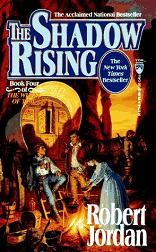There’s a good report up on Medialens of how something that looks at first sight to be a balanced newsreport, on further investigation,isn’t. No prizes if you guessed this might have something to do with climate change, and in particular, that High Court judge and his supposed finding of “nine errors” in Al gore’s An Inconvenient Truth. The BBC did their usual piece on this, by interviewing the involved parties, but they let themselves been snookered as they never looked into how the complainant, Stuart Dimmock, a lorry driver and school governor could afford to bring his complaint all the way to the High Court. If they had, they would’ve found that he was sponsored by the climate change skeptic New Party, itself sponsored by Scottish millionaire Robert Durward. By not reporting this in their interviews with Dimmock, the BBC therefore provided a clearly false picture of this court case while still adhering to the doctrine of “balance”.
This is only one example of a widespread practise, not just at the BBC but in all news media, where instead of journalists trying to determine the truth behind the surface story, only the claims and counterclaims of the involved parties are reported. This is not necessarily a bad thing; in politics especially it is often hard to objectively determine the truth of a story, or the story is about the conflicting interpretations of government and opposition for a given incident. It’s then that a summation of claim and counterclaim is justified, but not when relevant facts are left out of the story.
But even when this sort of reporting is justified, a story can be balanced and still be unfair. An example of this was on display in a news item I heard last night on the Radio 4 six oçlock news bulletin. The story was about the Scottish government’s opposition against a replacement for the UK’s current Trident based nuclear deterrent. since the Trident submarines are based in Faslane in Scotland, making the country therefore a nuclear target, it’s clearly a legitimate concern of the Scottish governement, even though technically it falls outside their jurisdiction.
On the BBC news however this was framed with a soundbyte from Wendy Alexander, the leader of the Labour opposition in the Scottish Parliament, who said she didn’t want English politicians speaking for Scotland on matters like healthcare and therefore Scottish politicians should not speak out about English or British matters either. This was immediately followed by a question from the BBC reporter to the Scottish National Pary’s spokesperson on whether the SNP did not go too far in its opposition to Trident replacement. With that, even though both sides, Labour and SNP, got their say, the bias of the story was clearly in favour of Labour; but you wouldn’t know that it was biased unless you paid close attention.
It’s a borderline dishonest way of reporting on stories, and it’s far more common than you think. Much of the reputation of a Jeremy Paxman or a John Humpries for being “tough”, it seems to me, is due to mock aggresive oneway questioning like this, where only the weaker party is attacked like this. The BBC may pride itself on being independent, but in important matters it will almost always take the side of the vested interests, the establishment.

